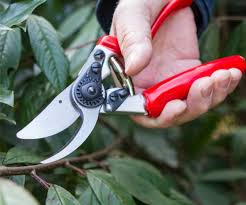The following vegetables will gladly stand a cold spell - in fact, they will emerge from winter with strongly established root systems, raring to go in the spring:
- Broad Beans
- Garlic
- Onion sets
- Peas
November is the perfect time to plant new perennials, trees and shrubs. Many plants will be entering a period of dormancy over the winter, so can withstand the disturbance and do not require as much maintenance as those planted during hotter and drier weather.
As long as the ground is not frozen, November is the right time to plant the following bulbs:
- Alliums
- Anemones
- Bluebells
- Fritillaria
- Hyacinths
- Irises
- Spring-flowering Crocus
- Snowdrops
- Tulips
These will produce an early show of colour to look forward to next year. The bulbs can be planted in the ground or in pots, or a mixture of both. Consider whether a mixture of different colours would be most eye-catching for your garden, or whether a flush of a single colour would strike a stunning display.
- Check guttering is properly attached to all structures in the garden. A badly functioning gutter can overflow particular areas of the garden, causing water logging, damaging plants.
However, rainwater collected properly and used purposefully in the garden is great for the environment and for most plants, which generally prefer untreated water. - Spread compost from the heap on beds. This will protect soil and plants from difficult weather and make the earth easier to work with in the spring.
- Remove dead leaves from flower beds and lawns and add to the compost heap or a leaf mould bin.
- Make a wish list of new equipment you need for the garden. Perhaps it’s time for a new fork or pair of secateurs?
- Create a bog garden. Attract frogs, newts, toads and beneficial insects to your garden. Moisture-loving plants can be placed around the edge to provide shelter.
- Start planning for next year. Order seeds and new fruit trees, and start sketching out your plans for the garden.


